| Listing 1 - 10 of 20 | << page >> |
Sort by
|
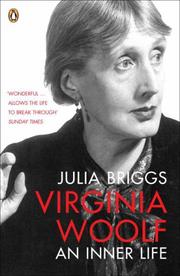
Abstract | Keywords | Export | Availability | Bookmark
 Loading...
Loading...Choose an application
- Reference Manager
- EndNote
- RefWorks (Direct export to RefWorks)

ISBN: 1403918767 1403918775 9781403918765 9781403918772 Year: 2006 Publisher: Basingstoke : Palgrave,
Abstract | Keywords | Export | Availability | Bookmark
 Loading...
Loading...Choose an application
- Reference Manager
- EndNote
- RefWorks (Direct export to RefWorks)
This guide is ideal for students of creative writing who wish to explore the writing process and its relationship to self in order to develop as writers. Each chapter links a range of theoretical approaches to one practical aspect of writing, using illustrations from fiction, poetry and literary non-fiction, and suggesting practical exercises for pursuing the topic further. The book will enable students to develop literary, critical and psychodynamic understandings of the creative process and to explore a range of key topics.
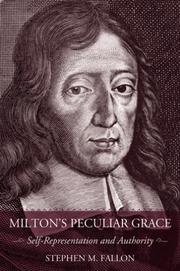
ISBN: 9780801445163 0801445167 080147485X 1501732412 Year: 2006 Publisher: Ithaca (New York) ; London Cornell University Press
Abstract | Keywords | Export | Availability | Bookmark
 Loading...
Loading...Choose an application
- Reference Manager
- EndNote
- RefWorks (Direct export to RefWorks)
Authority in literature. --- Autobiography in literature. --- Self in literature. --- Milton, John, --- Criticism and interpretation.
Book
ISBN: 9782748333718 Year: 2006 Publisher: [Paris] : Publibook,
Abstract | Keywords | Export | Availability | Bookmark
 Loading...
Loading...Choose an application
- Reference Manager
- EndNote
- RefWorks (Direct export to RefWorks)
Self in literature. --- Moi dans la littérature --- Auster, Paul, --- Criticism and interpretation.
Book
ISBN: 5799602536 9785799602536 Year: 2006 Publisher: Ekaterinburg Uralʹskiĭ gos. universitet
Abstract | Keywords | Export | Availability | Bookmark
 Loading...
Loading...Choose an application
- Reference Manager
- EndNote
- RefWorks (Direct export to RefWorks)
Book
ISBN: 8484327078 9788484327073 Year: 2006 Publisher: Barcelona Crítica
Abstract | Keywords | Export | Availability | Bookmark
 Loading...
Loading...Choose an application
- Reference Manager
- EndNote
- RefWorks (Direct export to RefWorks)
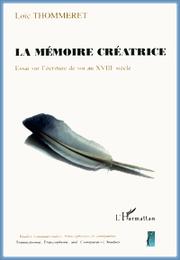
ISBN: 2296008267 9782296008267 Year: 2006 Volume: *2 Publisher: Paris L'Harmattan
Abstract | Keywords | Export | Availability | Bookmark
 Loading...
Loading...Choose an application
- Reference Manager
- EndNote
- RefWorks (Direct export to RefWorks)
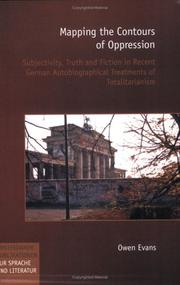
ISBN: 9401201676 1423785975 9781423785972 9042017198 9789042017191 9789401201674 Year: 2006 Publisher: Amsterdam ; New York, NY : Rodopi,
Abstract | Keywords | Export | Availability | Bookmark
 Loading...
Loading...Choose an application
- Reference Manager
- EndNote
- RefWorks (Direct export to RefWorks)
Despite all the assertions towards the end of the twentieth century that the literary subject had expired along with the author, the wave of autobiographies published in German after the Wende was a clear indication that, on the contrary, life stories were very much alive. In this study, Owen Evans examines the work of eight authors - Ludwig Harig, Uwe Saeger, Ruth Klüger, Günter de Bruyn, Günter Kunert, Christoph Hein, Grete Weil and Monika Maron - who all published personal texts after 1989 dealing either with life in Nazi Germany or the GDR, and in some cases both. By means of close textual analysis, Evans explores the impact these regimes had on the individuals concerned and the contrasting ways in which the authors handle the autobiographical project. They adopt varying textual strategies to render the self on the page, with some employing overt fiction, and yet in each case, the project was clearly motivated by the need to treat psychological wounds inflicted on the self by totalitarianism. In their mapping of the contours of oppression, the texts at the heart of this study combine to offer a powerful defence of literary autobiography, in Germany at least, as a valuable means of tackling the legacy of totalitarianism.
German literature --- National socialism in literature. --- Self in literature. --- Socialism in literature. --- Totalitarianism and literature. --- Totalitarianism --- Literature and totalitarianism --- History and criticism. --- Germany --- History --- Fiction.
Book
ISBN: 9782296005099 2296005098 Year: 2006 Volume: 11 Publisher: Paris: L'Harmattan,
Abstract | Keywords | Export | Availability | Bookmark
 Loading...
Loading...Choose an application
- Reference Manager
- EndNote
- RefWorks (Direct export to RefWorks)
Le genre autobiographique est souvent théorisé par la critique des littératures francophones, mais sa relation avec les concepts du postcolonial et de l'hybridité a encore peu été analysée de façon systématique. Le présent ensemble d'articles s'interroge sur l'autobiographique, tant comme norme littéraire ancrée dans la culture occidentale, que comme problématisation postcoloniale de l'hybride et du genre. Il décrit en particulier la relation entre la manifestation autobiographique et l'hybride pour décider du statut épistémologique des textes, et il entame une systématisation des approches méthodologiques. Il ne s'arrête pas à la constatation d'une particularité des écritures francophones par rapport à une définition traditionnelle du genre autobiographique, mais se propose d'ouvrir de nouvelles pistes pour éviter le grand écart entre une dévalorisation des textes francophones face au modèle établi, et une surévaluation de leur spécificité, qui s'accompagne en effet le plus souvent d'une nouvelle marginalisation. Le questionnement du concept générique de l'autobiographie permet ainsi, soit à des écrivains tels que Glissant, Chamoiseau, Khatibi, Brossard, Bugul, Mokeddem, Hammoud, Zotoumbat et d'autres, soit à la critique, de recourir à la tradition littéraire occidentale et de la considérer comme une référence culturelle parmi tant d'autres, sans l'ériger pour autant en norme universelle.
Thematology --- French literature --- Psychological study of literature --- Autobiography in literature. --- Self in literature. --- Littérature française --- Autobiographie dans la littérature --- Moi dans la littérature --- History and criticism. --- Histoire et critique --- Autobiography in literature --- Self in literature --- French-speaking countries --- History and criticism --- French literature - French-speaking countries - History and criticism
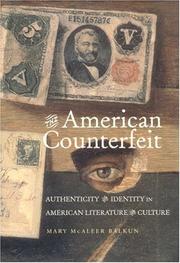
ISBN: 0817314970 0817382577 9780817382575 9780817314972 Year: 2006 Publisher: Tuscaloosa : University of Alabama Press,
Abstract | Keywords | Export | Availability | Bookmark
 Loading...
Loading...Choose an application
- Reference Manager
- EndNote
- RefWorks (Direct export to RefWorks)
Fakery, authenticity, and identity in American literature and culture at the turn of the 20th century Focusing on texts written between 1880 and 1930, Mary McAleer Balkun explores the concept of the "counterfeit," both in terms of material goods and invented identities, and the ways that the acquisition of objects came to define individuals in American culture and literature. Counterfeiting is, in one sense, about the creation of something that appears authentic-an invented self, a museum display, a forged work of art. But the counterfeit can also be a means by which the authentic
American literature --- 20th century --- History and criticism --- 19th century --- Authenticity (Philosophy) in literature --- Identity (Psychology) in literature --- Self in literature --- Passing (Identity) in literature --- Counterfeits and counterfeiting --- Literature --- Twain, Mark --- Larsen, Nella --- Fitzgerald, Francis Scott --- Counterfeits and counterfeiting in literature. --- Authenticity (Philosophy) in literature. --- Impostors and imposture in literature. --- Identity (Psychology) in literature. --- Passing (Identity) in literature. --- Self in literature. --- History and criticism.
| Listing 1 - 10 of 20 | << page >> |
Sort by
|

 Search
Search Feedback
Feedback About UniCat
About UniCat  Help
Help News
News